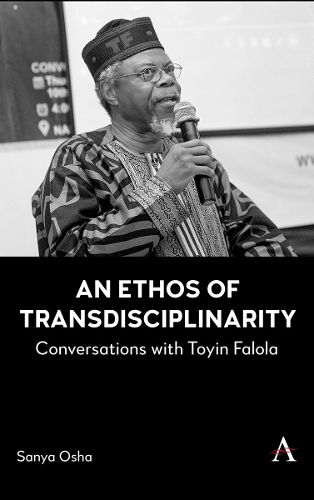Readings Newsletter
Become a Readings Member to make your shopping experience even easier.
Sign in or sign up for free!
You’re not far away from qualifying for FREE standard shipping within Australia
You’ve qualified for FREE standard shipping within Australia
The cart is loading…






Toyin Falola's astounding intellectual production must be one of the mysteries in the intellectual world. It has transcended the confined world of historical research into broader horizons that include the role of the public intellectual.
The present study would undertake a rigorous analysis of the origins, continuities and discontinuities of this transformation. This means we have to recast the debates regarding who is a public intellectual from a multiplicity of discursive situations and historical and cultural contexts. We have to employ methodological parallels from North Atlantic intellectual traditions. How did the role of the public intellectual emerge in the first place in world intellectual history? Addressing this question would enrich this research endeavour immensely.
In interrogating comparative discursive formations, we shall re-evaluate the roles, functions and achievements of continental intellectuals such as Betrand Russell, Jean-Paul Sartre, Andre Malraux, Albert Camus, Michel Foucault, Edward Said, Wole Soyinka and Pierre Bourdieu. Again, this discursive element will give this study a global appeal and range.
$9.00 standard shipping within Australia
FREE standard shipping within Australia for orders over $100.00
Express & International shipping calculated at checkout
Toyin Falola's astounding intellectual production must be one of the mysteries in the intellectual world. It has transcended the confined world of historical research into broader horizons that include the role of the public intellectual.
The present study would undertake a rigorous analysis of the origins, continuities and discontinuities of this transformation. This means we have to recast the debates regarding who is a public intellectual from a multiplicity of discursive situations and historical and cultural contexts. We have to employ methodological parallels from North Atlantic intellectual traditions. How did the role of the public intellectual emerge in the first place in world intellectual history? Addressing this question would enrich this research endeavour immensely.
In interrogating comparative discursive formations, we shall re-evaluate the roles, functions and achievements of continental intellectuals such as Betrand Russell, Jean-Paul Sartre, Andre Malraux, Albert Camus, Michel Foucault, Edward Said, Wole Soyinka and Pierre Bourdieu. Again, this discursive element will give this study a global appeal and range.